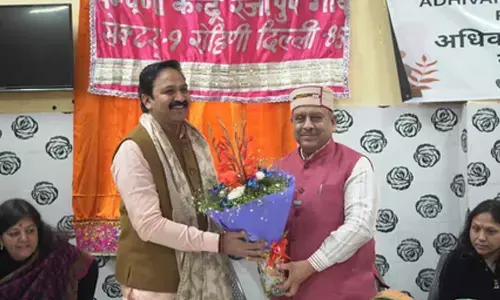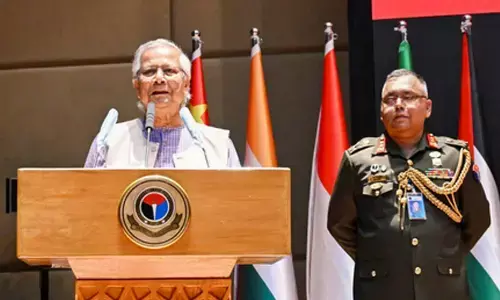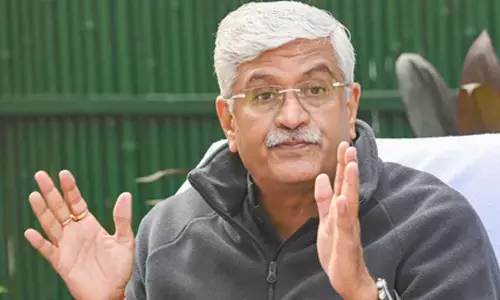A transformative Leadership: Village Named After a Dynamic IAS Office

A transformative Leadership: Village Named After a Dynamic IAS Office
Read about the inspiring story of Divya Devarajan, whose transformative leadership in bringing about a huge development in rural areas led to the honour of the village being named after her.
Being a leader is not the ultimate, but the ability to impact lives and create a special place in people’s hearts is the true sign of leadership. One such story is that of IAS officer Divya Devarajan, whose transformative leadership to rural development led to a unique honour - a village named after her. The residents of Adilabad village renamed the village ‘Divyaguda’ in her honour. The decision to name the village after her was driven by the collective gratitude of its residents. This recognition is not only a rare gesture but also a symbol of her dynamic leadership and the profound impact she has had on the community.
Transformative Leadership by Divya Devarajan
Divya’s leadership was not just about policies, but about vision, compassion and the ability to bring about a systematic change. IAS officer Divya Devarajan earned the trust of the tribal communities in Adilabad, Telangana, during her tenure as District Collector in 2017. She was posted amidst ongoing tribal conflicts and immediately took steps to connect with the community.
Before jumping into action, she studied the situation of the area and understood that the only way to help these rural people was to be sensitive and create a barrier free communication with them so that they could connect with her. The tribal population here mostly consisted of Gonds and they spoke Gondi. Divya took up this challenge and learnt Gondi in just three months.
There were other bureaucrats before Divya who learnt Gondi. But they stopped at the basics. Divya insisted on learning the language fluently so that she could have a meaningful conversation with the people. She said, “I wanted to connect with them and it wasn’t just about greeting them”. Everyday after work, she spent some time with Durwa Bhumanna, a senior announcer of All India Radio station in Adilabad.
Learning the language made her journey easier as people started explaining their problems and Divya could communicate with them regarding this. This helped her gain the trust of the tribals.
What Motivated Divya to become an IAS officer?
Divya Devarajan, a 2010-batch IAS officer, was inspired to join civil services by her experiences and family values. Her grandfather, a farmer in Tamil Nadu, often faced harassment from officials while repaying debts, which deeply influenced her desire to create an administration that supports vulnerable groups. Additionally, her father, who worked for the Tamil Nadu Electricity Board, inspired her with stories of bringing electricity to villages and the joy of serving people.
Her early life was shaped by challenges, such as facing water shortages and public transportation issues in Chennai. These experiences gave her a firsthand understanding of systemic problems faced by ordinary people, reinforcing her motivation to work toward impactful solutions.
Rural Transformations by Divya Devarajan
Under Divya Devarajan’s guidance, Adilabad village underwent a great transformation and the tribal community said they would never forget the proactive lady who had quick solutions to all their issues.
One of the first things that Divya did was make the office accessible to everyone. A tribal leader said “Several collectors have come and gone, but would you believe me if I said I only stepped into the Collector's Office for the first time after Divya madam took charge? Before that, it felt like no one really cared”.
She also visited each house in the village and knew everyone by their names. This act won the hearts of all the people. Like most people from villages and tribal areas of our country, the people of Adilabad also did not know about their legal and constitutional rights. She appointed PESA (The Provisions of the Panchayats (Extension to Scheduled Areas) Act, 1996) coordinators at the Gram Panchayat level and filled the vacancies to help people understand their rights and how to exercise them.
Her notable initiatives included appointing tribal coordinators and language translators in public services like hospitals, making government facilities more accessible. She also tackled issues like illiteracy, unemployment, sanitation, irrigation, and health while promoting tribal rights and cultural preservation. Her work ensured farmers received the Minimum Support Price for their produce and resolved land disputes that had been pending for decades.
Divya Devarajan’s achievements didn’t happen overnight. Her approach combines empathy with strategic thinking, making her a dynamic IAS officer capable of inspiring both her peers and the communities she serves. The village named after IAS officer Divya Devarajan is a testament to her transformative leadership and the profound impact one individual can have on rural development.


















